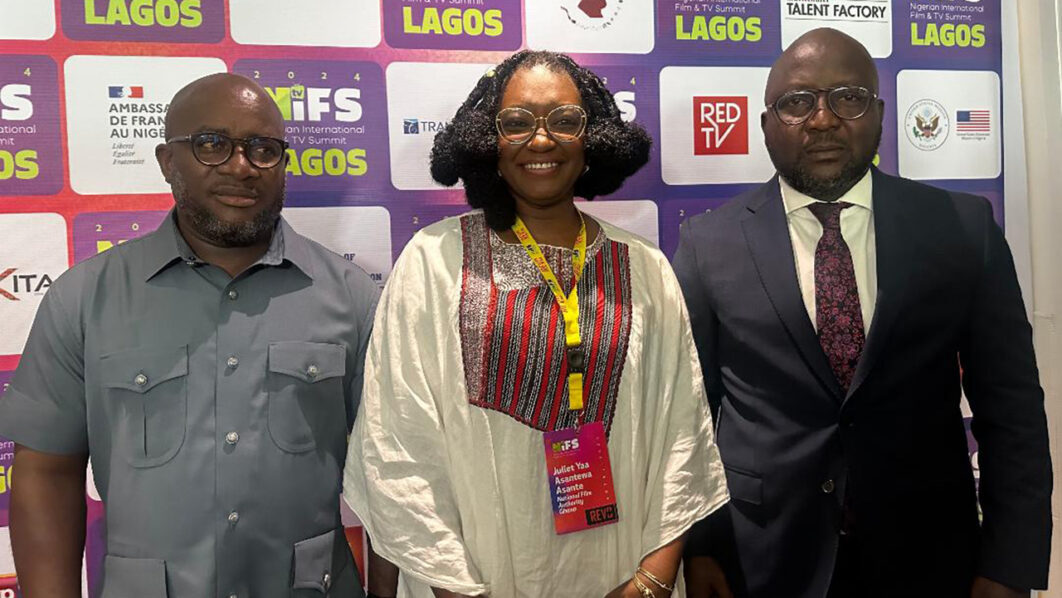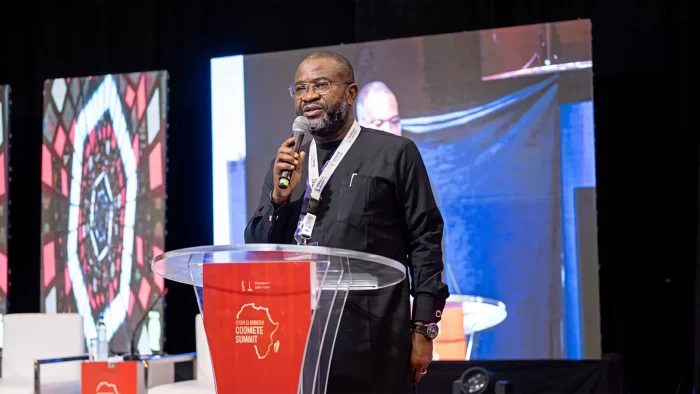
To strengthen working relationship, stakeholders in the Nigerian and the Ghanaian film industry recently gathered at the Legend Hotel, Airport Road, Lagos for the Nigerian International Film and TV Summit to discuss ways to form a closer ties and the future of film industry in both countries.
[ad]
Over the years, the Nigerian film industry has evolved from being a powerhouse of entertainment to a global billion-dollar industry. In 1984, Nigeria’s first blockbuster, Papa Ajasco, earned ₦61,000 in three days. Thirty years after, in 2024, A Tribe Called Judah has gone to amass over ₦1.4 billion in theatres.
On its part, the Ghanaian film industry has had a vibrant history that spans colonial era to the contemporary era of video movies.
It showcases a dynamic evolution reflective of the nation’s changing socio-political landscape and its interaction with global cinematic trends. With average revenue of $1.1 million, Ghallywood showcases the rich culture and traditions of Ghana through high-quality productions.
However, over the years, the two industries have witnessed unhealthy rivalry, which stakeholders are currently working to strengthen the synergy between the two industries and leverage on similarity between the people’s culture and similarities in their ways of life.
The conversation emphasises the importance of collaboration among West African countries to promote cultural and economic growth within the film industry.The conversation also touches on the recognition of the creative industry as a significant economic sector and the efforts by Ghana and Nigeria, especially Lagos State to attract filmmakers, despite challenges. The solution involves understanding and integrating local communities into film productions.
The Ghanaian Minister of Tourism, Arts, and Culture, Andrew Egyapa Mercer, said the summit is a testament to the robust creative spirit of the African continent.
“African cinema has come a long way, evolving from local storytelling traditions to becoming a force on the global stage. Our stories are now being told not just in our languages, but in the universal language of film, a language that is understood and appreciated by people from all walks of life. Nigerian cinema, popularly known as Nollywood, has led this charge with its prolific output, creativity, and resilience, making it the second-largest film industry in the world.”
[ad]
He advocates for a Nigeria and Ghana partnership in film development and advancement of the film and TV industries to drive economic growth; create jobs, and foster cultural exchange.
“For our industries to thrive, we must invest in talent development and infrastructure. The young, creative minds that drive our film and TV sectors need access to quality training, mentorship, and opportunities. Our governments, in partnership with the private sector, must prioritize the establishment of film schools, production studios, and distribution networks that can support the full value chain of film production and distribution. Furthermore, we must create environments that are conducive for filmmaking; environments where creativity is nurtured, where intellectual property is protected, and where filmmakers can access the financial resources, they need to bring their visions to life.”
Speaking also, Special Adviser on Media and Publicity to the Lagos State Governor, Gboyega Akosile, emphasised the state government’s commitment to supporting the creative industries, particularly Nollywood, which he described as a vital component of Nigeria’s cultural heritage and economic future.
“The Lagos State government is dedicated to creating conducive environment for the film industry to thrive. We are keen on initiatives that will support filmmakers, provide access to financing, and ensure that our stories are told in the best way possible.”
“You can never get it wrong in collaboration; nobody can go further without collaboration. The best thing is for Nigeria, Ghana and other West African countries to handhold one another for growth. There are so many similarities, many things that bind us together and there are so many areas we can work together and forge a common front. The idea is to tell the African story. The idea is to tell the world who we are as a people, and tell our story in positive ways.”
On her part, Founder and CEO of Nigeria International Film and TV Summit, Ijeoma Onah, commended the participants who travelled from across the world to join the Summit.
She also reiterated her commitment to the upliftment of the film industry in Nigeria and globally. Reflecting on the day’s proceedings, Onah reiterated the Summit’s mission to be a catalyst for growth and innovation in the Nigerian film and TV industry.
Chief Executive Officer (CEO), Ghana National Film Authority (NFA), Juliet Asante, said: “Nigeria and Ghana have so much in common and there is so much we can do together rather than being apart.
“If we remove the bottle neck, if we recognise that we are one people, there is so much we can achieve. Ghana is working even on a case by case basis. We are calling on filmmakers in Nigeria to contact the national film authority whenever they come to Ghana, we will hold their hands.”
Asked if collaboration between the two film industries is yielding needed results, CEO, Nile Entertainment group, Moses Babatope, said: “It is yielding results. Today, we are having discussion about the industry with the government. The African Cinema summit is going into second edition. Our comparative advantage shows that we can build businesses in Africa by Africans. Nigeria has 220 million and Ghana has 40 million and coming together means almost 300 million people coming together. We both speak English language, eat seminal food. We should not let setback discourage us and tackle issues such as Nigerian movies being illegally shown in Ghana should be reported.”
[ad]








